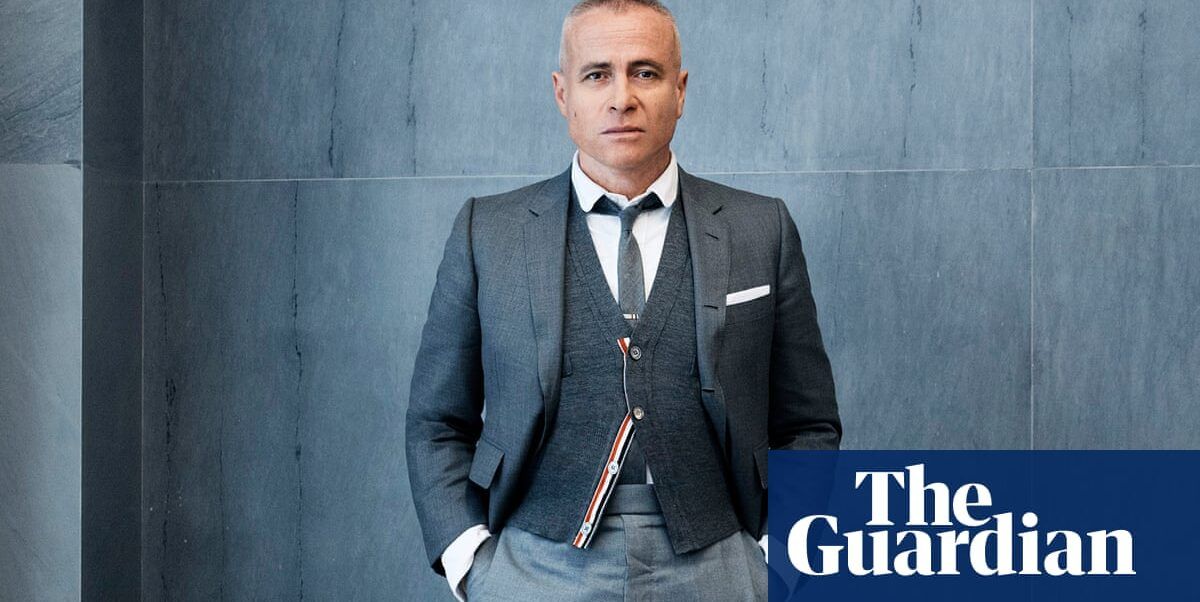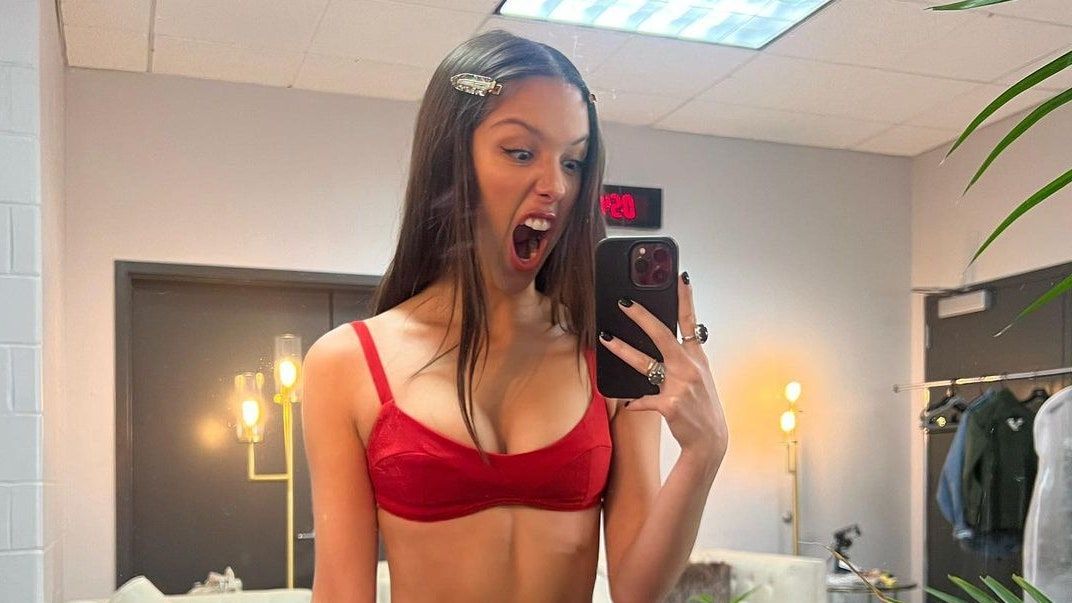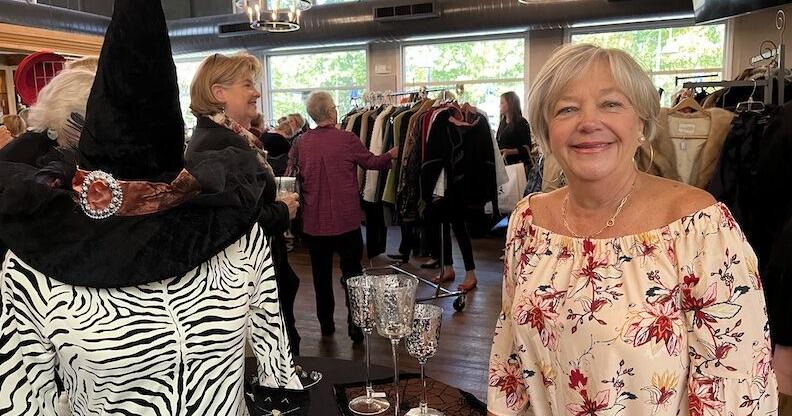In the tense moments before the restaurant is about to open, in the season two finale of The Bear, head chef Carmy places a Thom Browne box in front of sous-chef Sydney. Inside is a white chef coat, with the US designer’s stripes on the arm, which she wears throughout the episode – through mounting kitchen drama and chaos. Miraculously, she keeps it spotless. Miraculous, too, for Thom Browne. In a show celebrated for its storytelling though clothing choices, the placement was a marketing coup.
“I haven’t really caught up with the show,” Browne says from his grey-panelled office in midtown Manhattan. But two PRs helpfully interject that Chris Storer, creator of the hit show, is a longtime customer. Plus, Browne is friends with its lead actors Ayo Edebiri, who plays Sydney, and Jeremy Allen White (Carmy).
The US designer may have been on the frontlines of the fashion industry for the past two decades, re-shaping men’s suits to the point of constriction and sending fastidiously-cut grey suits, often with tight shorts instead of trousers, down the catwalk – as well as modelling the look himself. But he is not a household name.

The New Yorker recently described the look he has pioneered as “impish and a little bit kinky”, which it is, but it is also highly influential. The men’s silhouette in fashion has been shifting, going ever smaller and tighter. Men from Downing Street to the football terraces now look smaller, pinched – look to Browne’s tight grey cardigan recently worn by the former Bournemouth manager Scott Parker, or to the short-short trousers that have recently landed Rishi Sunak in sartorial hot water. With each came the stylistic finger prints of Browne. He has arguably done more to change the male silhouette, and challenge the conventions of men’s clothing, than anyone since Giorgio Armani in the 1980s.
Anna Wintour, editor of US Vogue (and the global chief content officer of Condé Nast) told the publication that the Browne “penguin” silhouette is now accepted as “absolutely part of the fashion vocabulary. He completely changed the way we see.” Now, in men’s fashion magazines, there is discussion about the correct length of shorts for the season. “I love it,” Browne says, adding that the length of his shorts never changes.
What is the thinking behind his convention challenging designs – are they a gender silhouette switch-up, a feature of the male-to-male gaze or a surreal, fetishistic fantasy? Whatever it is, people would ask Browne if he realised his trousers were too short and his suit didn’t fit. “No, it does fit me,” he would respond. “This is how I want it to fit.”
So, simply put: why so short? “It was just something I wanted to do,” he says. “It wasn’t anything thought out. It was just personal to me … I wanted to make sure I took ideas people understood and gave it to them in a way they just did not understand.”
Born in Allentown, Pennsylvania in 1965, he attended Catholic school then studied economics at Notre Dame college. After attempting to break into acting in Los Angeles, he moved to New York in 1997 and got a job as a salesman at Armani, before joining Club Monaco, which was then a Ralph Lauren label, as a designer.
Now twenty years since founding his own label, 2023 is a big year for him. In January he became chair of the Council of Fashion Designers of America, a role he took over from Tom Ford, and he has a book out – a monograph to mark the anniversary.
Part of the fashion establishment – his longtime partner is Andrew Bolton, curator of the costume institute at the Metropolitan Museum of Art, home to the Met Ball – the brand has flourished on the back of global demand for sportswear, with tailoring that has brought customised school uniforms into the office. “With an S&M twist,” notes one bespoke Browne customer, who points out that the cut has the effect of a corset that pushes out the chest and accentuates muscularity.
Among his designs are a unisex dog-shaped handbag (the brand’s bestseller) and pleated skirts for men. He has branched out in to women’s clothes, too, and dressed Michelle Obama for her husband’s 2013 inauguration in a businesslike coat-dress. In 2018, he sent men out in his women’s line tailoring, which may not look so transgressive now, but did so then. “The possibility of magic and mischief hung thick in the air,” said a Vogue review at the time.
In 2021 Adidas took legal action against Browne over his use of four stripes in his designs, which the sportswear company said was too close to its trademark three-stripe logo. He won, in a dispute that has helped small companies resist being steamrolled by commercial giants. “It was fundamentally really unfair – a ridiculous big company coming after a smaller company. It was important to fight to represent to other designers that when you create something it’s not right for a company to use their money, and all the resources in the world, to do this to other people.”
after newsletter promotion
Nowadays, his business occupies four floors in the garment district. Employees are in head-to-toe grey uniform, the walls are grey, and Browne is in a grey suit with shorts, wearing a tiny women’s vintage Cartier watch, and legs shaved to mid-calf. It was this same contrarian impulse that drove the choice of bureaucratic grey as his brand colour. “It’s very non-fashion,” he says. “It’s very timeless, and there are so many shades you can use. Most importantly it’s not navy or black. So it’s not for fashion.”
But for all of the business-grey, his catwalk shows are theatrical affairs. Over the summer, he showed his clothes in Paris. To a soundtrack of Visage’s Fade to Grey, he placed 2,000 cardboard cutouts of men in grey suits, and the audience – including Cardi B, Diane Keaton and a flock of fake pigeons – on the stage of the Opéra Garnier. “My job is to do things like that – to make you think of things you didn’t think of before – ideas that are funny, or ridiculous or nonsense.”

As a couple, Bolton and Browne sit within the politburo of New York fashion. “Our life is our work,” he says simply – Browne goes out and plays with conventions, and Bolton gets to decode and articulate the meanings. The pair have a mansion on the Upper East Side, which was built for a member of the Vanderbilt railroad family. But they’re not out on the scene, following TikTok-driven restaurant trends. Mostly it’s home, watching TV – they rewatch Brideshead Revisited once a year.
Browne’s 20 years in the business have not all been smooth. Like many fashion brands, it nearly went under after the financial crash of 2008. But in 2018, the Italian luxury house Ermenegildo Zegna acquired 85% in a deal that valued the company at $500m. Zegna’s revenues are rising. In April, the company’s CEO, Ermenegildo “Gildo” Zegna, said they were up as much as 42% year-on-year and Browne had “done particularly well in greater China”.
The theme of his collection this season is Moby-Dick, because he read it as a boy. It includes a dark green, below-the knee Harris tweed skirt for men. It’s a manifesto, something to wear to a corporate office. “I think we live in a world where men should be able to wear anything,” he says. “I don’t really care if anybody wants to wear it, but I think it looks good, and it’s an interesting proposition for anyone who does.”
Thom Browne, with an introduction by Andrew Bolton (Phaidon, £125) is out now




